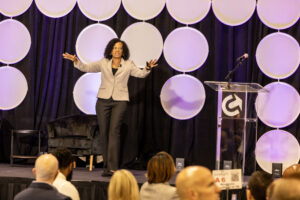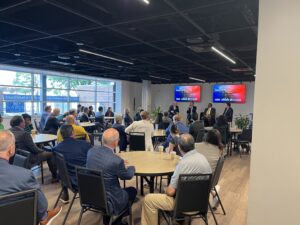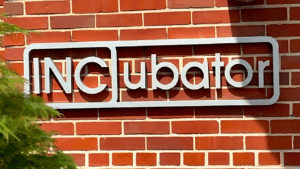Josué Vega, Marketing & Communications Intern
We have smartphones. Smart watches. Smart cars. And now…smart cities?
While the name “smart city” conjures thoughts of futuristic towns a la The Jetsons, smart cities are actually present realities. In fact, if you’re reading this it’s highly probable that you live in or around one—our own Chattanooga.
According to Government Technology, much of the research used to create smart cities originated right here. The Chattanooga Smart Community Collaborative, a collaboration of local large businesses Enterprise Center, CO.LAB, the University of Tennessee at Chattanooga, Erlanger Health System, Siskin Hospital, and EPB, has worked for the last few years gathering data to help cities with traffic, energy, transportation, and much more. This researched has aided cities who are striving to become smart as well, such as San Jose, California.
So what is a smart city? Interestingly, student researchers from the University of North Carolina found that, from regular Joes on the street to CEOs of companies involved in smart city development, no one had the same definition for a smart city. There was, however, a general sense that it involved technology and data.
Indeed, these certainly play an important role, as French aerospace company Thales Group defines smart cities as “a framework, predominantly composed of Information and Communication Technologies (ICT), to develop, deploy, and promote sustainable development practices to address growing urbanization challenges.”
The most obvious ICTs in Chattanooga is our broadband network supplied by EPB. In its first 10 years of service, EPB broadband “directly supported the creation and retention 9,516 jobs,…about 40% of all jobs created in Hamilton County” during those years, according to SmartCitiesWorld. Additionally, it has aided in keeping unemployment rates two percentage points lower than the U.S. unemployment rate, as well as decreasing carbon emissions by 7,900 tons, keeping a 40-55 percent annual decrease in power outage minutes, and much more. Most recently, EPB partnered with Greenspaces and Habitat for Humanity to build an energy-efficient home in Chattanooga, using cost-effective, zero energy resources.
One of the city’s most exciting ICTs is nestled in the heart of downtown, spanning over 1.25 miles from Highway 27 to Central Avenue. In an interview with Government Technology, Mina Sartipi, Ph.D., director, Center for Urban Informatics and Progress, University of Tennessee, said the the MLK Smart Corridor, as it is called, serves as “a test bed for research in smart city developments and connected vehicles in a real-world environment.” It is also a “programmable and flexible wireless infrastructure for different applications.” The Smart Corridor helps researchers learn how to avoid car crashes and pedestrian injuries and how traffic can flow more efficiently, on top of being a good testing area for new travel technologies like autonomous vehicles. Recently, the Smart Corridor received funding to be upgraded to a Smart Corridor+. Large groups from high school students to international researchers will now have access to all the information the Smart Corridor+ provides so that more Smart Cities can be built.
But is technology the only thing that makes a smart city? Not according to the student researchers from the University of North Carolina. They felt that there was more to the definition of a smart city—and that Chattanooga already had it going on. That secret was collaboration.
In an interview with WUTC, they stated, “We came to the conclusion that that’s one of the big advantages that Chattanooga has, is the ability to collaborate in this space. The partnerships are really one of Chattanooga’s key strengths, the collaboration and willingness of people to just always work toward a better smart city…”
Whenever businesses team together, whether it’s to build a green home with zero energy, to share research with each other, or simply to network and provide support, that’s the key ingredient of a smart city. Sounds like Chattanooga for sure.







